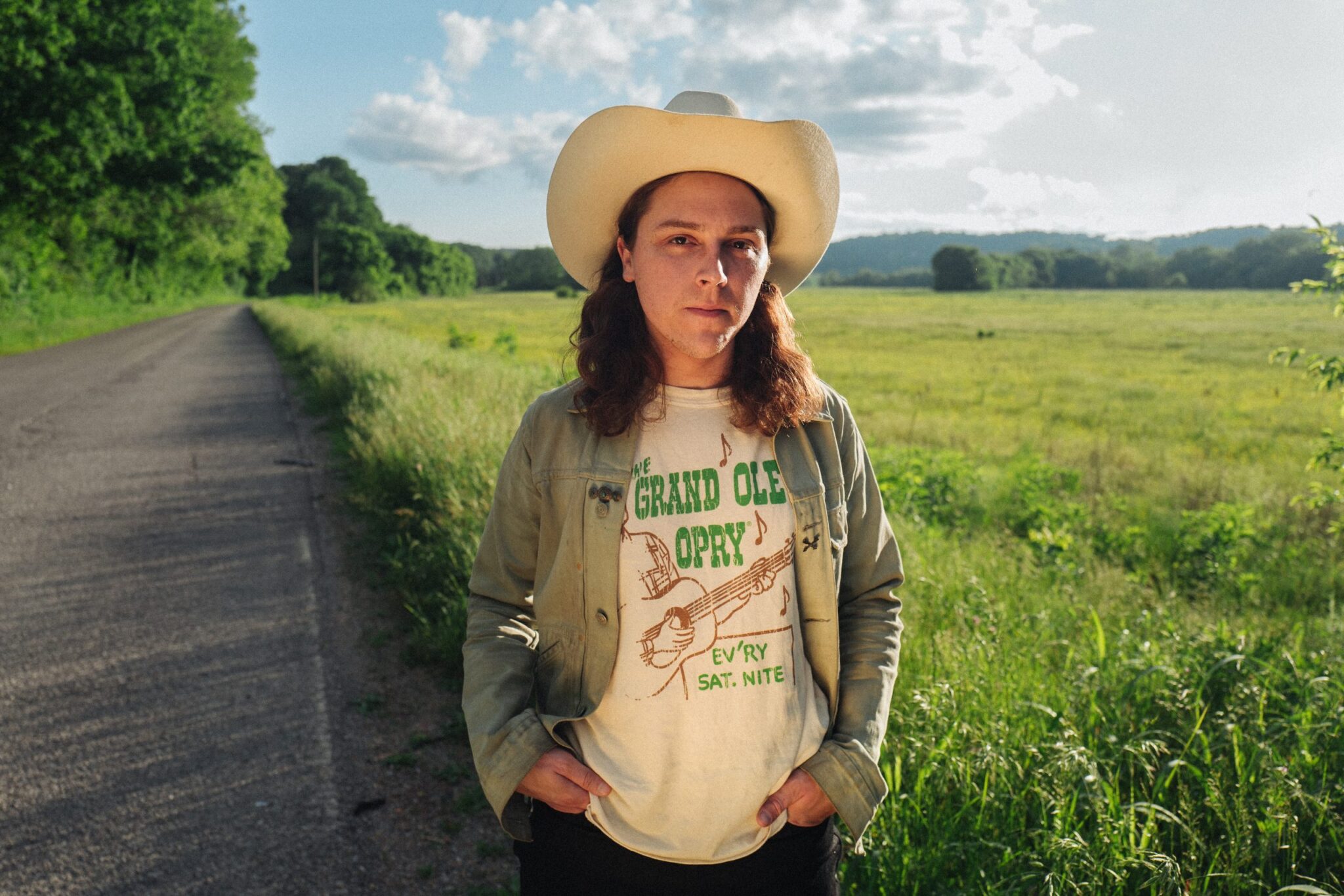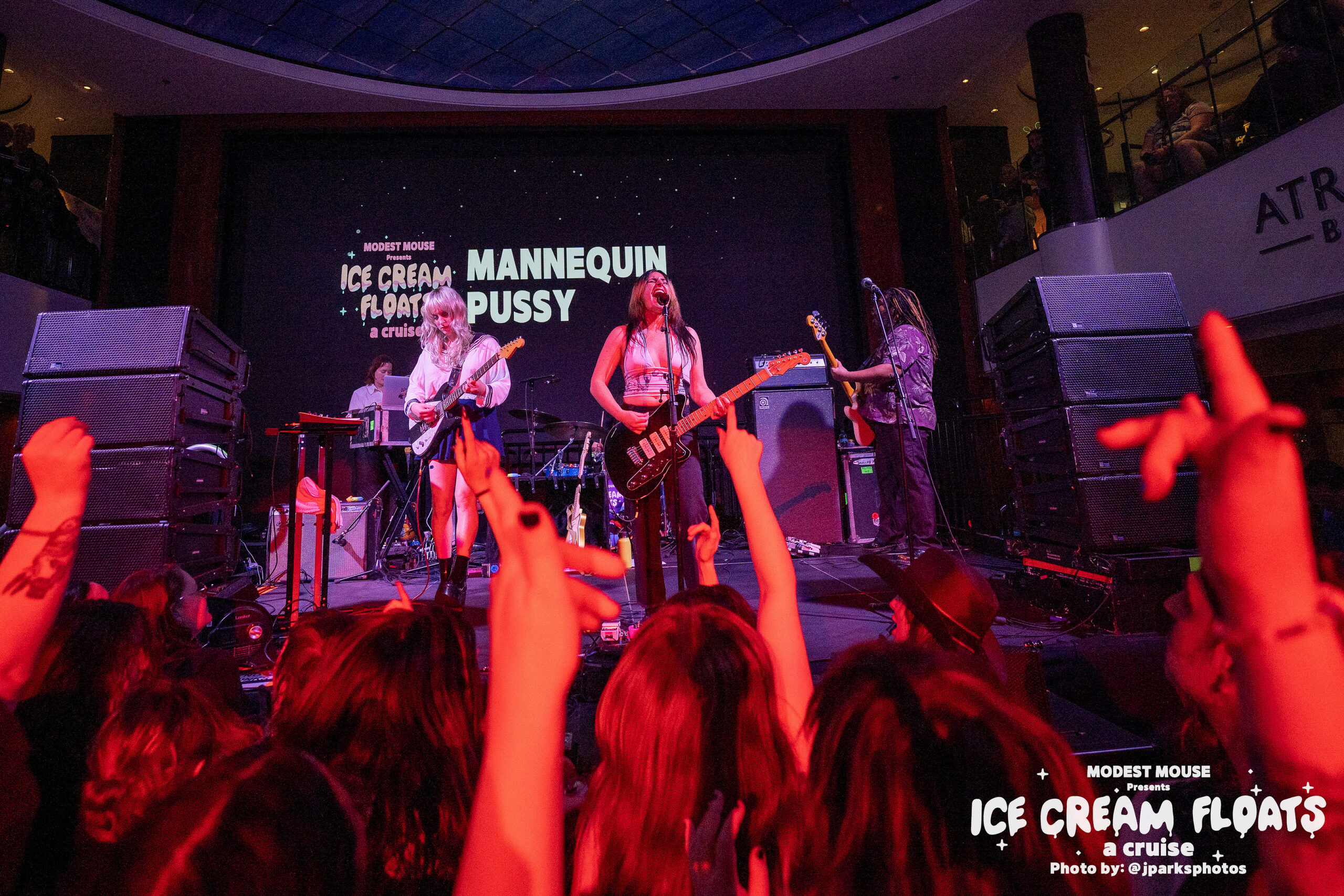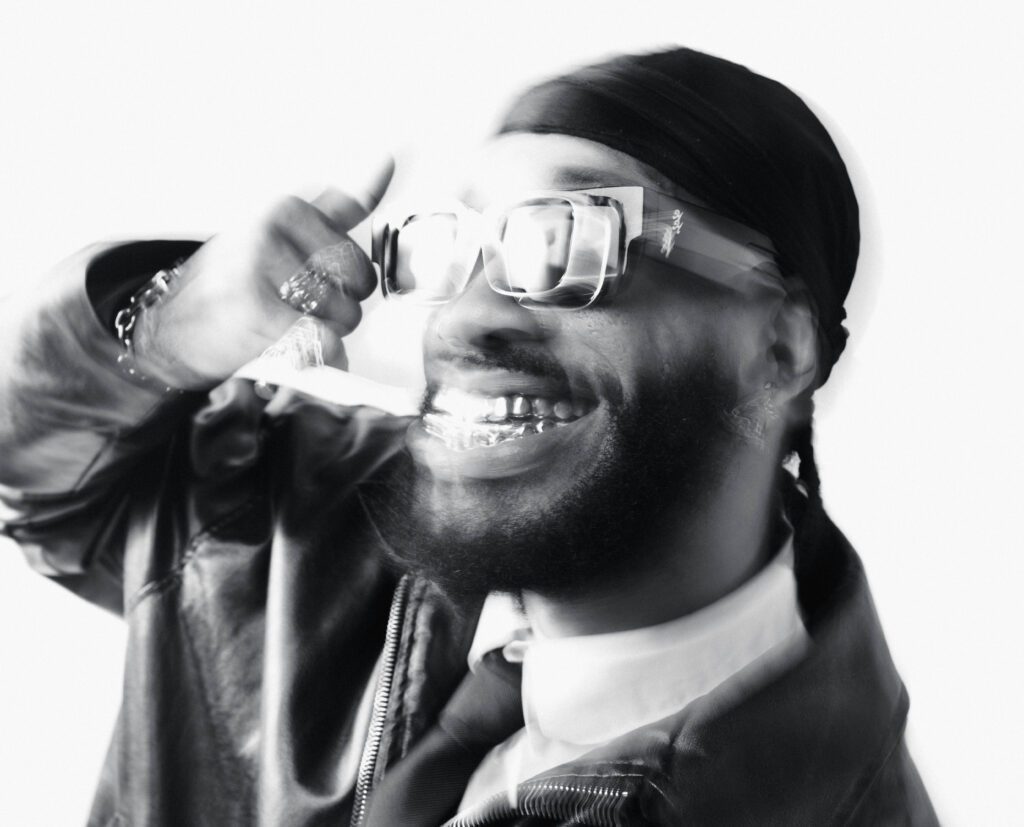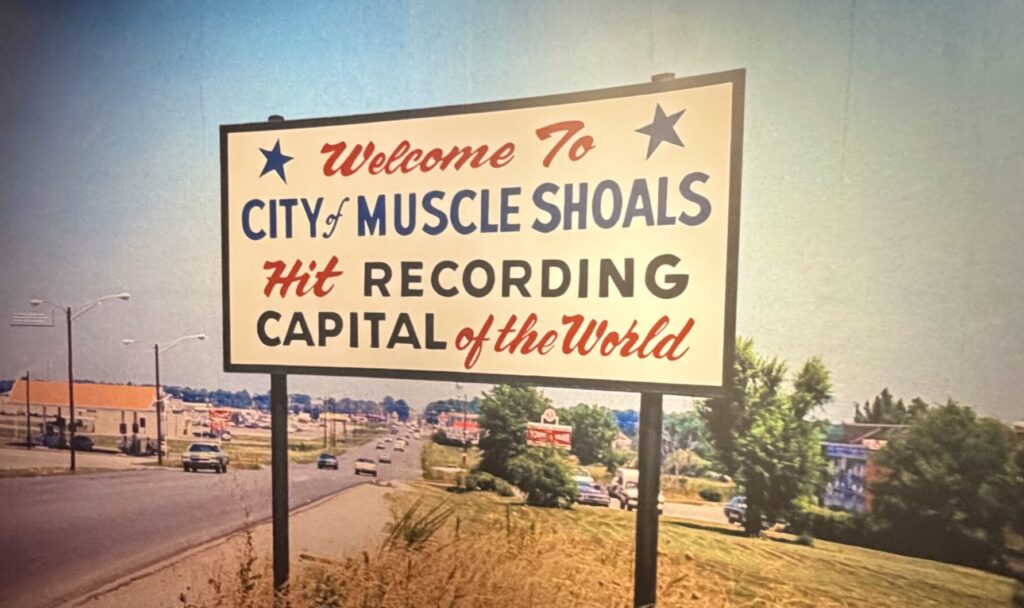Daniel Donato was just a teenager when he first took a guitar down to Lower Broadway in Music City’s tourist-packed downtown and played for change. This DIY busking gig, with its requisite hutzpah and being studious in the learning and constant practice of classic country music, would elevate the player to a regular residency inside a honky tonk even before he could legally drink there. It was Robert’s Western World where Donato played hundreds of shows with The Don Kelley Band, the last of which was 10 years ago this week.
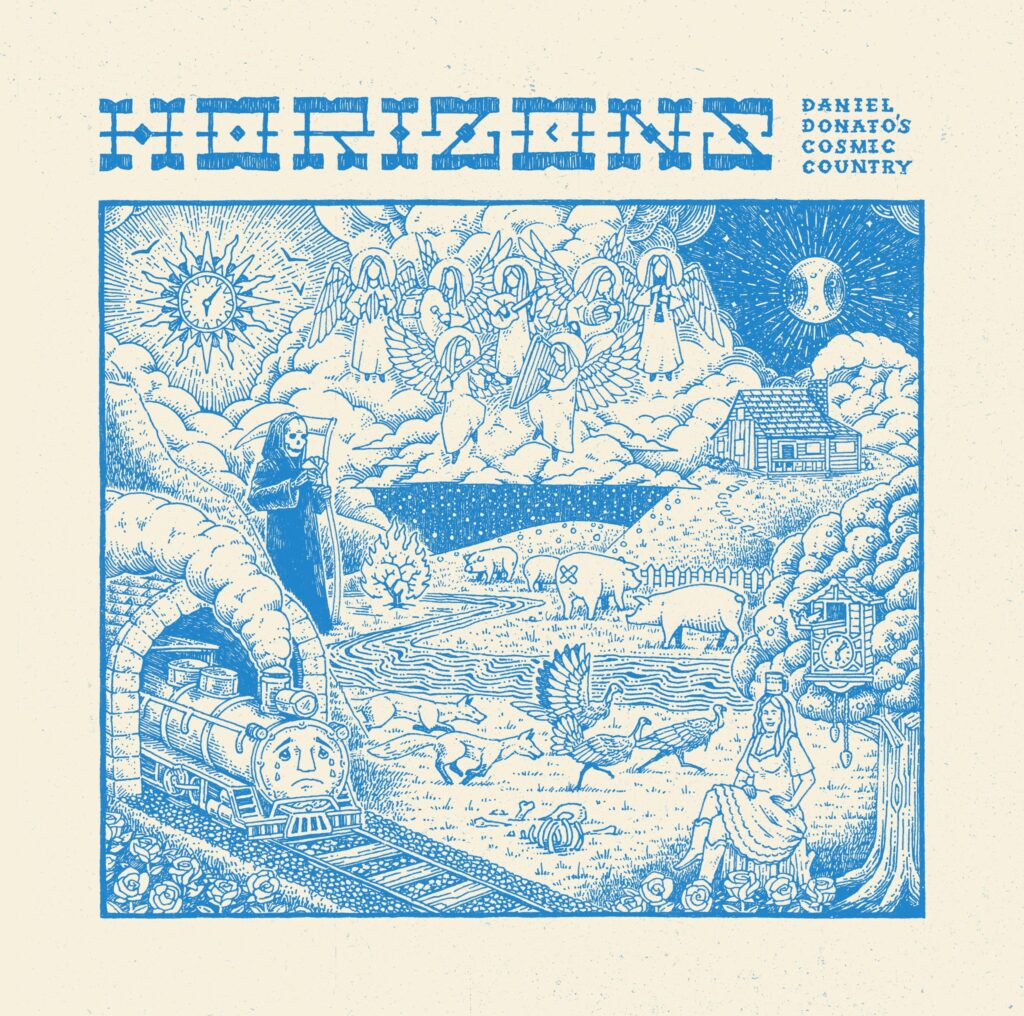
So, he told me, “it feels like a homecoming of sorts” that the same day Donato released his third studio album called Horizons, the longtime Nashvillian headlined the city’s most beloved historic venue, Ryman Auditorium. Just across the well trodden alleyway from the backdoor of Robert’s, at the theater that has played host to all his heroes and inspirations, 30-year-old Donato brought his Cosmic Country band and brand — a high-energy adaptation of roots music with psychedelic, big peaks rock ‘n roll delivery — to the biggest crowd of his career.
“What’s cosmic about it is there’s a geographical homeness to it. But there is [also] a spiritual sense to it. This was the place as a child where I first discovered the universe is designed for my life and music was instrumental to that. I had something then that, as I get older, I try to chase and then I’ve told myself I don’t have, or I got to go do an exercise to get it. And I don’t! There’s just a great feeling of liberation that’s coming with this week.”
Enjoy insights from Daniel Donato On The Record with WNXP here or via the WNXP Podcasts channel. Parts of our conversation are included below for length and clarity. Horizons, recorded in Nashville and co-produced by Vance Powell, is out now.
Music as service
Celia Gregory: “Cosmic country” is its own thing. I love that it’s been something you can own, not just the band name, but also like the brand. But I’ve read that you almost have sort of a mission statement around this. And it really speaks to us here at public radio because we think music matters, but also that it is a service. And you’ve said this, it occurs to you that “music is actually a form of service. You can make a living out of it and do beautiful things with your life.” But it’s also about “bringing truth into people’s lives.” I’m feeling that. What you just said sort of lends to that, too, that this is what you were born to do and you’re able to continue finding it.
Daniel Donato: Oh my God, yeah, it never stops personalizing itself. Service is actually a really great way to organize how I can participate and bring value to what’s going on. And it helps me realize that, in any walk of life, our job is to bring 50%. And I think the other side, the cosmic mirror brings the other 50%. We’re in a time now — “rise and grind” culture might be a meme that I could use as an example of some kind. It has been said, “whatever you find your hands to do, do it well,” and there is a truth to that. I believe that. But it’s not 100% us setting all these designs up in our life.
I really don’t care about what word or symbol people have to personalize whatever that spirit is or whatever avenue they walk through. Whether it be, you know, being raised in a certain belt of the country, or having a substance experience that led them to some new idea, or reading a book or anything. I think it all leads into the same place… Music is a form of service and we get to serve everyone that has the ears to hear.
Public radio in this time that we’re also in right now is something that I marvel at. I feel like we’re on similar missions, you know, we’re standing our ground on certain qualities and we’re not really negotiating on certain things in life that are very sacred like music.
Recorded songs as snapshots of the live experience
CG: You are so experiential as an artist, I mean the touring experience and the way the songs take shape on the road. But the way you composed these songs and then laid them down for record…can you talk about this batch of work that you’re finally getting to share all at once [on Horizons]?
DD: Have you ever seen a photo of someone you loved and you haven’t seen them in a while? And that photo incites all these actual experiential moments in time and space that you had with them. That photo, it’s a reference. It’s not that person, but it leads you to think about that person and feel that person. Perhaps a presence of that person on some non-material level. That’s the goal with making Cosmic Country albums. It’s also nice to like have part of the goal of like, you know, the guy from the record label with the gold Rolex being like, “It’s a hit, kid!” There’s that. That’s nice. But the primary mission is to basically create snapshots and allow them to be references. It’s very secondary to what we do live. That is like being in the moment with a person. And so I just want the record to be photos of these beings that are songs and the way to be in the room with those beings is to come and see us live, which is why we wanted to release it on a day we’re playing our biggest show yet.
Busking to headlining The Mother Church
CG: You’re not the first person to go from busking on Broadway to headlining Ryman right there, but you might be of a really nice few that have done it. I mean, it’s like half your life that you’ve been playing music in this area, right? What does that room mean to you?
DD: Ryman has kind of stood the test of time, and the people that operate it are just as important as the building. They’ve had numerous chances to sell out and turn it into another venue of tyrannical protocol on all levels, you know, $18 nachos, something like that. It’s not really what they’re about. They’re about staying true to tradition. And that’s what I have learned about the tradition of country music is that if an artist can serve tradition, tradition will serve the artist. And there’s a great reciprocity there.
The music that came out of the Ryman was the music I remember hearing when I was 14, old recordings of it, you know, from the ’50s and ’60s. That music just lit a fire in my soul. To be in the building, like the physical building where a lot of that history was played and reverberated through, it’s almost like a psychedelic experience to be in that same room. It’s quite strange.
Tradition
CG: You just spoke to an artist using tradition, also the tradition serving the artist. Is there an example from Horizons you would like to share…of you sourcing some of the best stuff of the traditions you’ve come from and making it your own?
DD: Oh, yeah, “Broadside Ballad” or “Better Deal Blues or “Blame The Train” or “Along the Trail.”
CG: OK, lots of them!
DD: Lots of them. It’s good when things get circular, you can start hyperlinking concepts, because that means that there’s like an ambiguous, omnipresent truth to [it]. We’re in this time now where the individuality and subjective nature of an individual is something that’s being worshiped. Perhaps in a way that might skew negative, take like an influencer that’s in the middle of a gorgeous mountain range, you’re taking a photo so you can tag the sunscreen company or like the sunglasses company that you’re with that sent you free sunglasses. It’s not only negative, but when we discover a new way of doing things, we tend to take it to a polarity, and then we correct ourselves back to something more integrated and healthy. So in this time now where the individual is key, the funniest thing that I’m learning is that the more that the individual can lose themselves in a tradition, the more individual they become. It’s this weird “as above, so below”… quite a strange phenomenon.
The “jam” music community
DD: The improvisational music scene, that is a purely American originated scene. It is critical to the story of this country. The idea of America is a fantastic idea, in my opinion. The execution has been very human. Just with a lot of ideas, we don’t make up the ideas. The ideas come to us from a place unknown. You can’t put your GPS in your phone to tell you to go to the place where the idea came from. But when we’re given an idea, it’s our job to execute it with as much sophistication and grace as possible.
I remember when I first got into this scene and started falling in love with it, it occurred to me slowly that this is a very proprietary American scene. The music is so free and it goes through the whole emotional spectrum of what somebody’s life can be, just like life is but a day’s work. One day we might have all these ups and downs of tragic darkness and tyrannical madness. And then we might also have a disorienting positivity and overwhelming excitement. And the music that’s in this scene touches on all of those tones and frequencies and colors and pressure points. So it’s a very real way of living, and playing.

